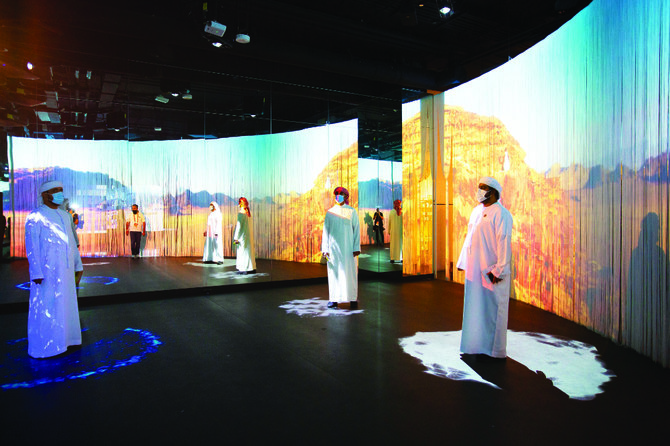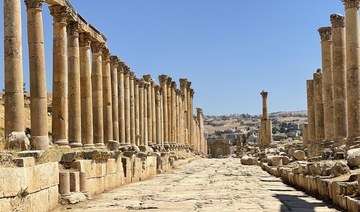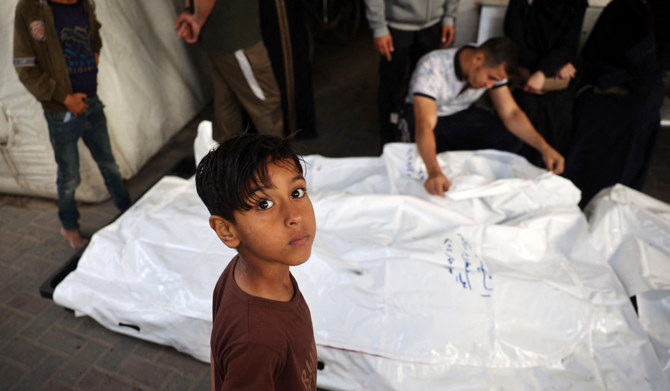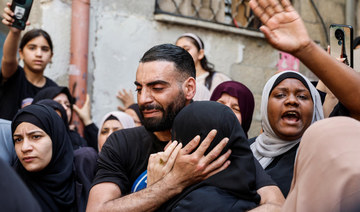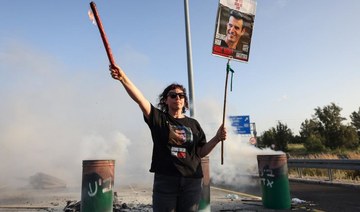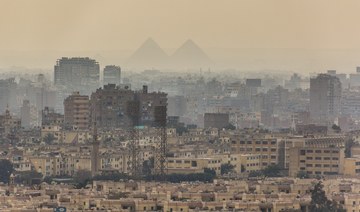DUBAI There are two main types of pavilions at Expo 2020 Dubai: “Self-build” pavilions that were funded by the participating nations themselves, and those that either received financial assistance from, or were fully built by, the expo.
Despite an unassuming exterior, Jordan’s pavilion — which sits within an expo-built structure at the heart of the Mobility District — is a must-see.
This standard style of fitted pavilion has been transformed into a unique space filled with varying textures and experiences. The resultant atmosphere is inviting, stylish and sensory.
As soon as they enter the reception area, visitors are welcomed to the Hashemite Kingdom of Jordan. A relief display outlines the country’s territory and highlights the significance of its position between Turkey to the north and Saudi Arabia to the south.
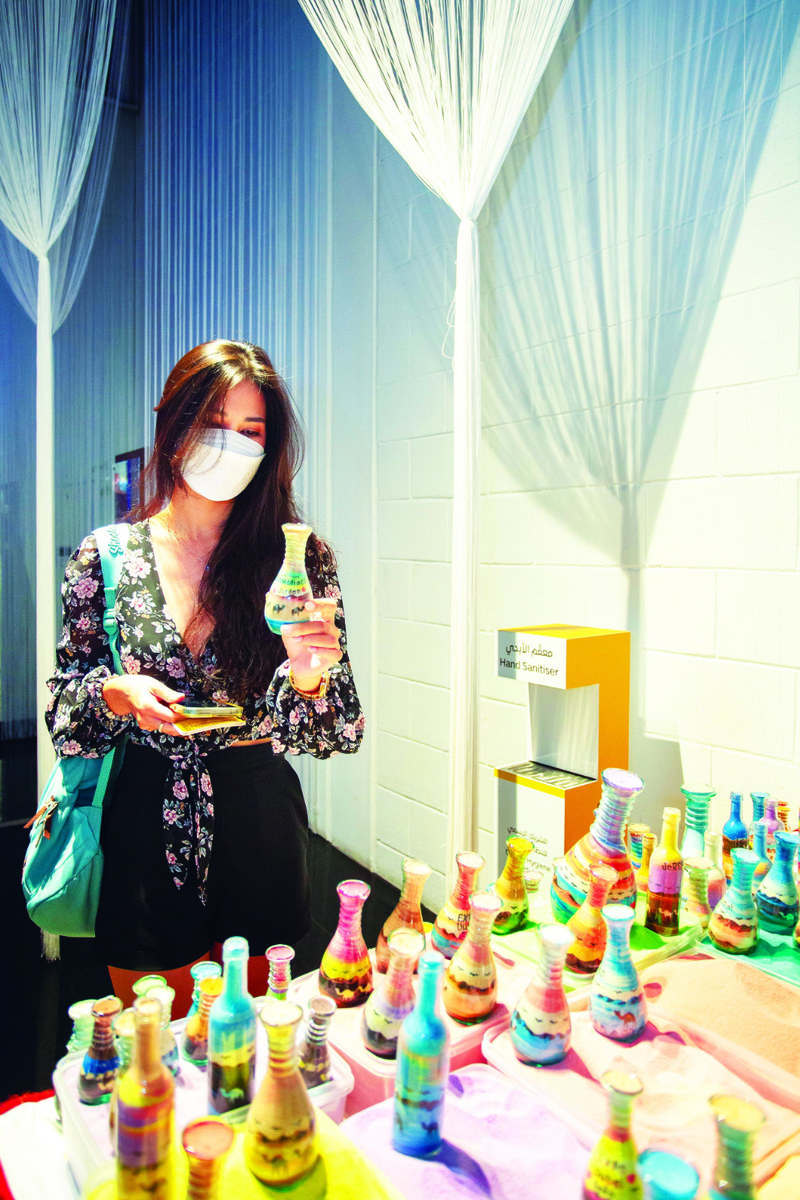
Jordan’s pavilion at Expo 2020 Dubai captures the sights and sounds of the country through interactive, multimedia exhibits. (Supplied)
From there, visitors walk down a winding wooden path called the Siq, with every step on their journey accompanied by multimedia effects and sounds. In Jordan, the Siq is the pathway through rock canyons that marks the entrance to the Nabataean city of Petra, which was built 2,500 years ago.
The Siq at Expo 2020 Dubai is a 30-meter, wooden sided path that leads to the pavilion’s main exhibition stage. Here, visitors are invited to enjoy a one-of-a-kind, authentic Jordanian experience that will stimulate all of their senses.
At the end of the pathway, they are greeted by a series of tassel curtains that they must walk through to enter a room bustling with light and sound. It is alive with images of Jordanian landmarks and attractions, including Wadi Rum, The Dead Sea, archaeological sites and lush green landscapes.
In a matter of minutes, visitors can get a taste of the finest experiences Jordan offers, from the lowest land-based point on Earth, on the shores of the Dead Sea, to the highest viewpoints across the country.
For a more immersive experience, they can put on a headset and explore the country in virtual reality.
Visitors are encouraged to explore the exhibition space at their leisure and fully engage with the displays. Every element includes an interactive or sensory element. The highlight is an audio-visual journey that introduces the country’s treasures, past and present.
A PAVILION FOR EVERY NATION
Expo 2020 Dubai is the first World Expo to adopt a “One Nation, One Pavilion” approach, which means each of the 192 participating countries has its own pavilion.
This gives them the chance to showcase their national identities, stories, innovations and future strategies in dedicated spaces assigned to one of three key, themed districts devoted to a particular concept: Sustainability, Mobility or Opportunity. This gives visitors a chance to fully experience the beauty and culture of every participating nation.
To make the “One Nation, One Pavilion” goal a reality, host country the UAE set up an assistance fund to support the participation of countries that otherwise might not have been able to justify the cost.
Countries that received assistance were carefully selected based on criteria such as level of development, income and geography, with smaller landlocked countries and island nations given special consideration.
As a result Expo 2020 Dubai features two main types of pavilions: “Self-build” structures that were fully funded by the participating nations themselves, and those fully or partly funded by the expo.
Self-build pavilions vary in size, are spread across the expo site, and are accessible from the main concourses. They are large and diverse, featuring unique facades adorned with national symbols and branding. The largest of these pavilions belong to the UAE, China and India.
The structures built by, or with assistance from, the expo are more similar in external appearance, and surrounded by courtyards or exhibition spaces. The eligible developing countries were provided with a fully fitted pavilion of their own, complete with internal finishing, fittings and basic furnishings, situated at the heart of one of the themed zones to ensure high visibility.
Illuminated fields are projected onto the floor, and when stepped on they change shape and trigger the sounds of traditional Jordanian song and musical instruments, including the oud, nai and tabla.
The role of an expo pavilion, whatever its shape, size or design, is to tell the story of the country it represents from the cultural and economic standpoints.
While some of the interactive displays that help to do this in Jordan’s pavilion are fun and immersive, others provide more specialized, technical information on a range of business topics, including the country’s economy, its agenda for entrepreneurship and policies for female empowerment.
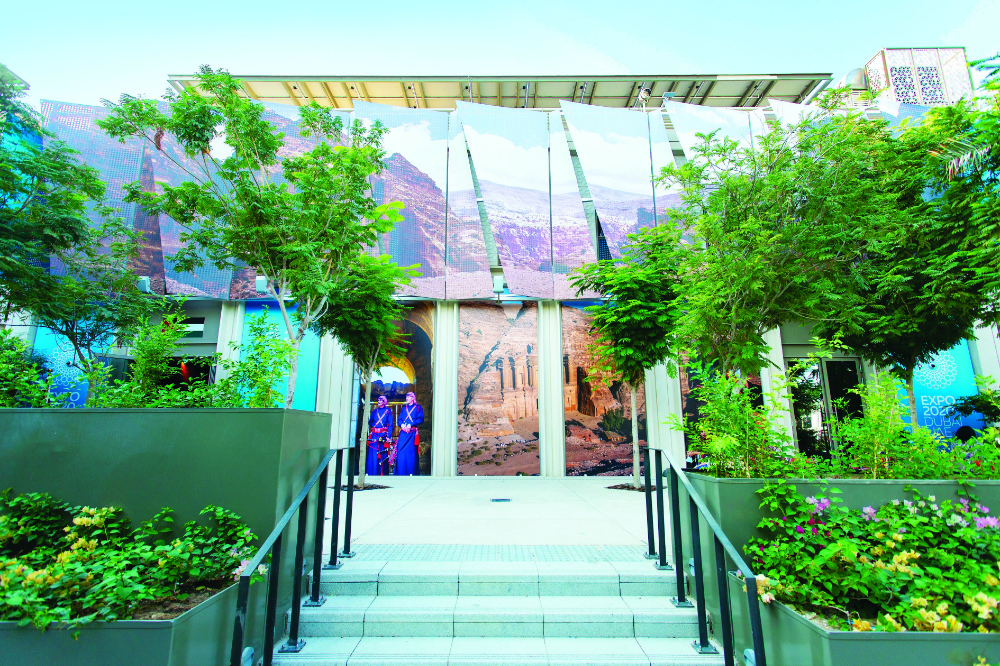
Despite an unassuming exterior, Jordan’s pavilion — which sits within an expo-built structure at the heart of the Mobility District — is a must-see.
Jordan links the content of its pavilion to Expo 2020’s wider, future-focused theme with a display dedicated to the launch of the first Jordanian satellite, CubeSat, which is one of the smallest of its kind.
The innovative design is the product of a cooperative program that partners engineering students at Jordanian universities with experts from NASA, under the supervision of Jordan’s Crown Prince Foundation. It is the first Jordanian venture in the space industry and was of particular interest during Expo 2020’s space-themed week.
Throughout the expo, Jordan will be hosting events designed to promote trade and cultural understanding and to stimulate inbound tourism. On Nov. 12, for instance, the country marked its National Day with a show at the expo featuring traditional music, a military band and other live performances.
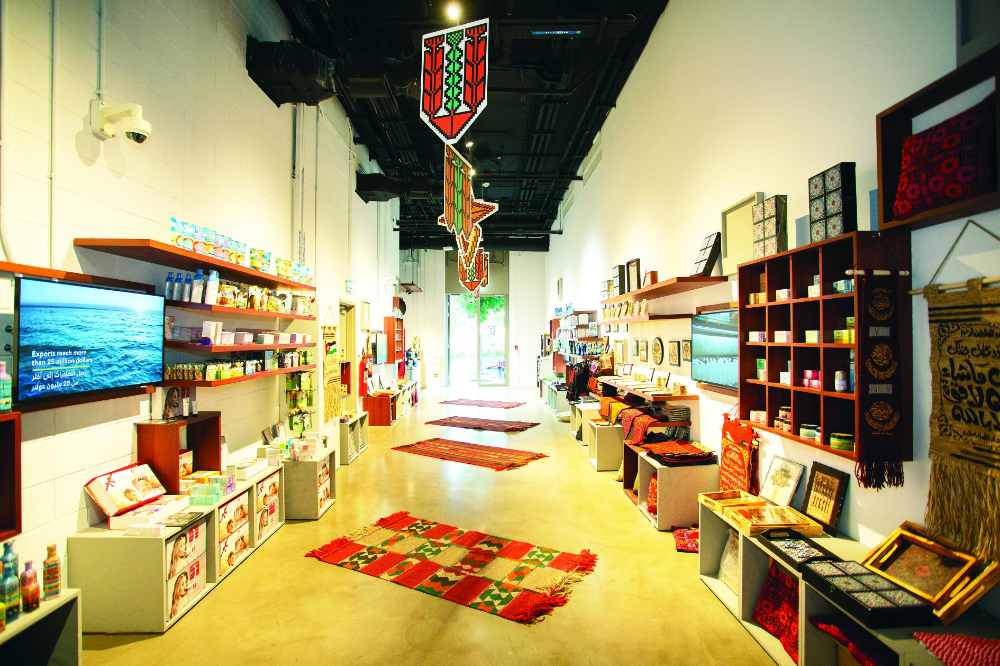
Jordan’s pavilion at Expo 2020 Dubai includes a gift shop offering authentic artisan products from the Hashemite kingdom. (Supplied)
After experiencing all that the pavilion has to offer, visitors can browse a gift shop showcasing a wide range of beautiful and unique Jordanian products, including handbags, olive oil and beauty products derived from the minerals of the Dead Sea.
Artisans are on hand to explain the cultural significance of the products, including face masks adorned with the national colors, bracelets made from local turquoise and other natural stones, and tea trays painted and decorated in traditional styles.
A message at the entrance to the pavilion states: “Whatever appeals to you, no doubt you’ll find it in Jordan. This hospitable land was, and still is today, a destination to many who call it home. Its people are known for their generosity and hospitality, making Jordan a visitors’ haven.”
Jordanians who have visited the pavilion told Arab News it lived up to their expectations, capturing not just the sights and sounds but also the spirit of their home country. Visitors are, indeed, likely to find something that appeals to them, they added.



